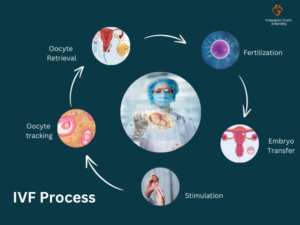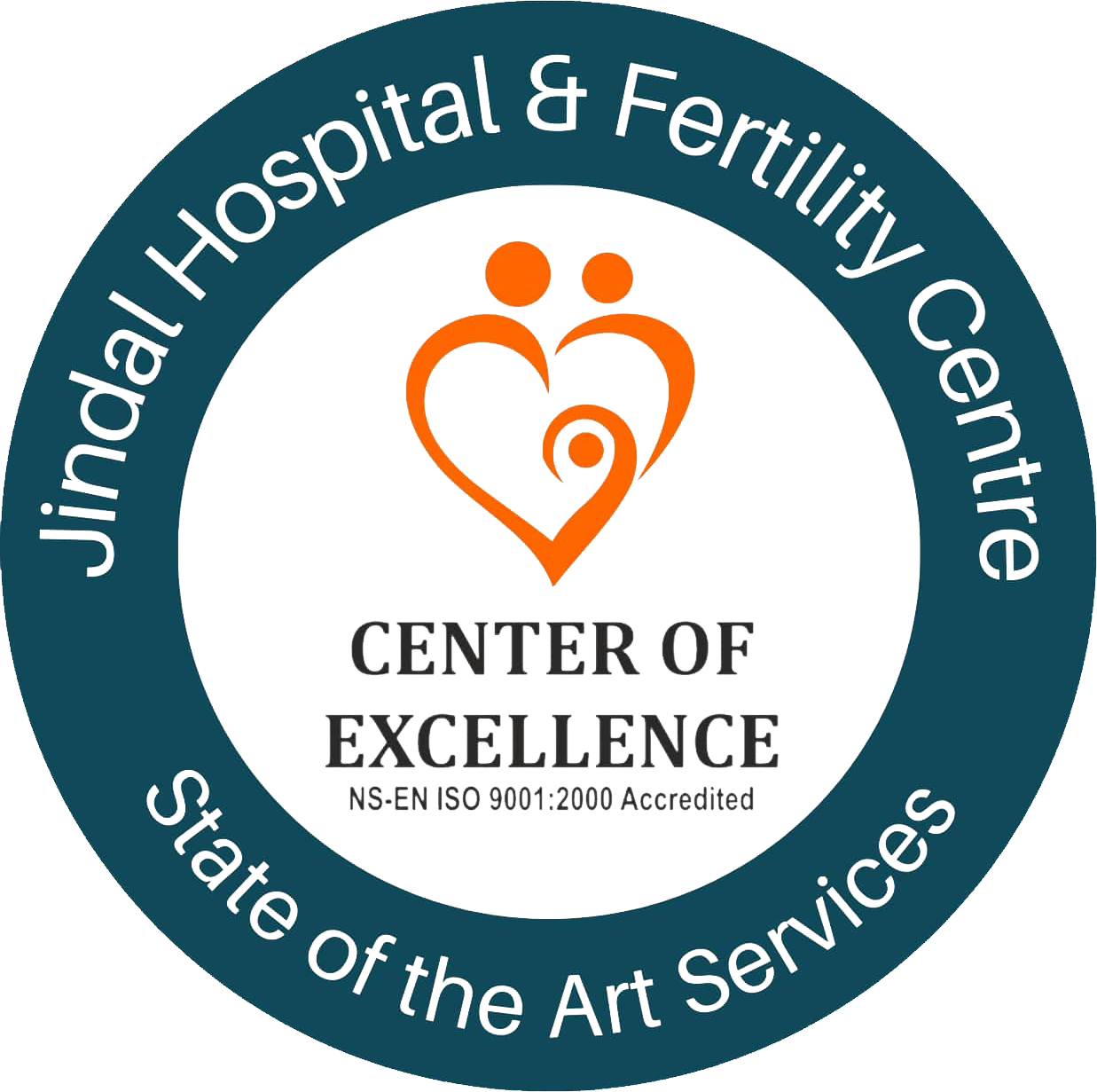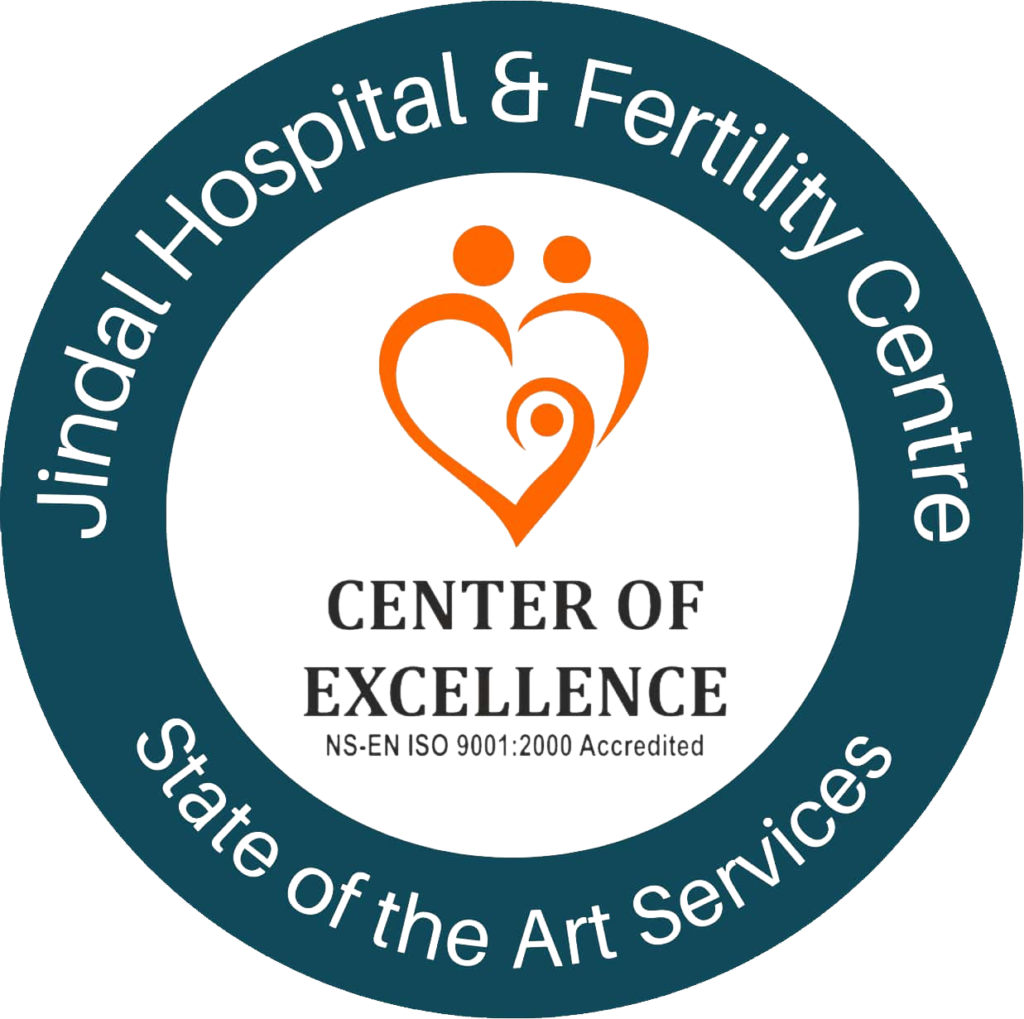
Overview
Why IVF is done?
IVF Procedure
Why choose us
Do's & Don'ts
Treatment Cost
FAQs
Overview
 Exploring the Best IVF Centers in India: A Comprehensive Guide
Exploring the Best IVF Centers in India: A Comprehensive GuideWhy Opt for IVF Treatment?
Understanding IVF and Its Relevance
Embarking on the journey of In Vitro Fertilization (IVF) often leads individuals to consider the best centers for this life-changing procedure. Whether it’s due to infertility concerns, pre-existing medical conditions, unsuccessful prior treatments, or advanced maternal age, IVF offers a ray of hope. This comprehensive guide delves into the practices used by Jindal Fertility Center (Jindal IVF) one of the best IVF centers across India, including the best IVF center in Meerut, the best IVF center in Delhi, and the top facilities that cater to individuals nationwide.
Conditions Where IVF Might Be the Solution
IVF might be recommended if you or your partner experience:
- Endometriosis
- Low sperm count or related issues
- Fallopian tube blockages
- Uterine complications
- Ovarian disorders such as Polycystic Ovary Syndrome (PCOS)
- The risk of passing on hereditary diseases
Embarking on an IVF cycle is a carefully orchestrated process, typically spanning four to six weeks. Here’s a breakdown of the sequential stages:
- Hormonal Regulation
- Stimulating Egg Production
- Egg Retrieval
- Sperm Collection
- Fertilization and Embryo Development
- Embryo Transfer
- Awaiting the Pregnancy Test
- Follicle-Stimulating Hormone (FSH) and Luteinizing Hormone (LH): These hormones stimulate controlled egg production, increasing the chances of fertilization.
- Human Chorionic Gonadotropin (hCG): Crucial for final egg maturation, hCG ensures eggs are ready for retrieval.
- Progesterone Injections: Post-egg retrieval, progesterone primes the uterine lining for embryo implantation.
Why IVF is done?
Understanding IVF Treatment: Conditions and Reasons for Seeking IVF
Why IVF Treatment Is Necessary?
Exploring the Need for IVF
In the realm of fertility treatments, In Vitro Fertilization (IVF) stands as a beacon of hope for those facing primary or secondary infertility. This revolutionary procedure becomes imperative when natural conception becomes challenging due to various underlying conditions. Here are the common reasons why individuals and couples seek IVF treatment:Conditions Requiring IVF Treatment
1. Damage or Blockage in the Fallopian Tube
The fallopian tube plays a pivotal role in fertilization, serving as the conduit for the egg and sperm meeting. Any damage or blockage in this crucial passageway hampers the journey of the egg, preventing it from reaching the uterus for implantation.2. Ovulation Disorders
Ovulation, the release of a mature egg from the ovary, is essential for conception. Disorders related to ovulation, such as irregular cycles or absence of ovulation, pose a significant challenge to natural conception.3. Endometriosis
Endometriosis, a condition where uterine tissue grows outside the uterus, affects fertility by impacting egg quality, ovarian reserve, and hindering embryo implantation.4. Uterine Fibroids
Non-cancerous growths in the uterus, known as uterine fibroids, can disrupt the reproductive process. These growths, influenced by hormone levels, increase the risk of pregnancy complications and contribute to infertility.5. Poor Egg Quality
The quality of eggs plays a vital role in successful fertilization and embryo development. Reduced ovarian reserve and poor egg quality can lead to failed implantation, miscarriages, and infertility, especially in women over 35 years old.6. Advanced Maternal Age
As women age, especially beyond 35 years, fertility declines due to reduced egg quantity and quality. IVF offers a solution by selecting genetically healthy embryos, reducing the risks associated with pregnancy at an advanced age.7. Impaired Sperm Production or Function
Male infertility can arise from compromised sperm quality or quantity, hindering fertilization. IVF addresses this issue by facilitating the direct introduction of sperm to the egg.8. Inability of Sperm to Survive in Cervical Mucus
Abnormalities in cervical mucus can impede sperm motility and survival, affecting fertilization and pointing towards infertility.9. Genetic Diseases
Partners carrying genetic diseases may opt for IVF with preimplantation genetic testing to ensure only healthy embryos are implanted, minimizing the risk of passing on hereditary disorders.10. Unexplained Infertility
In some cases, the cause of infertility remains elusive despite thorough investigations. IVF offers a comprehensive approach, diving deep into the patient’s health and offering a tailored treatment plan.Conclusion: Empowering Parenthood Through IVF
Navigating the Journey to Conception
IVF treatment opens doors to parenthood for those facing infertility challenges. Whether due to ovulation disorders, genetic concerns, or unexplained infertility, IVF offers a tailored solution. By choosing the best IVF center, individuals embark on a journey of hope, guided by expert care and cutting-edge technology. For those considering IVF in India, options like the best IVF center in Meerut, the top facility in Delhi, or renowned institutions across the nation provide avenues for realizing the dream of parenthood. Consultation with a trusted fertility specialist, such as Dr. Jindal at Jindal Hospital & Fertility Center, sets the stage for a transformative IVF journey.IVF Procedure
Steps in the IVF Treatment Process:
Step 1: Doctor Consultation
Jindal Hospital & Fertility centre, a renowned infertility centre, offers advanced IVF treatments. With cutting-edge technologies and a commitment to affordability, we strive to make your IVF journey smooth and successful.
Step 1: Doctor Consultation
- Initial meeting to evaluate medical history.
- Diagnosis and discussion of IVF procedure.
- Review of total procedure costs.
- Pre-IVF tests including blood tests, semen analysis, ultrasound, and uterine evaluation.
- Controlled Ovarian Hyperstimulation (COH):
- Fertility medications to stimulate ovarian follicles.
- Monitoring follicular development through ultrasound visits.
- Egg Retrieval:
- Procedure under sedation to extract mature eggs.
- Combining Egg and Sperm in Lab:
- Fertilization techniques such as Intracytoplasmic Sperm Injection (ICSI) and Assisted Hatching.
- Preimplantation Genetic Screening to ensure healthy embryos.
- Daily monitoring to select viable embryos for transfer.
- Transfer of selected embryos into the uterus via a thin tube.
- Painless procedure with mild cramping as a possible side effect.
- Undergo necessary tests and diagnostics.
- Make lifestyle changes to enhance treatment success.
- Emotions ranging from excitement to anxiety are common.
- Patience is crucial as you await results.
- IVF procedure is typically painless.
- Mild cramping may occur during and after the process.
- Confirmation of pregnancy through beta-human chorionic gonadotropin hormone tests.
- Follow-up tests to monitor pregnancy progression.
Jindal Hospital & Fertility centre, a renowned infertility centre, offers advanced IVF treatments. With cutting-edge technologies and a commitment to affordability, we strive to make your IVF journey smooth and successful.
Why choose us
Exploring the Best IVF Centres in India
Top Facilities Across the Nation
Consulting Your Fertility SpecialistEmpowering Your IVF Journey:
Choosing the right IVF center is crucial for a successful journey towards parenthood. Whether opting for the best IVF center in Meerut, the top facility in Delhi, or exploring options across India, seek guidance from experts. Schedule a thorough consultation with our esteemed fertility specialist, Dr. Jindal at Jindal Hospital & Fertility Center. Discover your options, navigate the IVF process, and embark on a journey towards fulfilling your dream of parenthood. This comprehensive guide aims to shed light on the best IVF centers across India, offering insights into the IVF process, precautions, and the role of hormonal injections. For those seeking the best IVF center in Meerut, Delhi, or anywhere in India, this guide serves as a valuable resource for informed decision-making.
Top Facilities Across the Nation
- Best IVF Center in Meerut: Jindal Hospital & Fertility Center
- Best IVF Center in Delhi: Jindal Fertility Centre (Jindal IVF)
- Top Andrologist in India – Dr. Sunil Jindal
- Increased risk of low birth weight and premature birth with multiple pregnancies
- Miscarriage or ectopic pregnancy
- Ovarian Hyperstimulation Syndrome (OHSS)
- Rare instances of organ injury, bleeding, or infection
- Side effects such as headaches, mood swings, or abdominal discomfort from fertility medications
- Avoid Strenuous Activities: Rest and avoid heavy lifting post-procedure.
- Follow Medication Guidelines: Adhere to prescribed medications for optimal results.
- Lifestyle Adjustments: Refrain from alcohol, smoking, and exposure to harmful substances.
- Regular Consultations: Stay in touch with your fertility specialist for guidance and support.
Consulting Your Fertility SpecialistEmpowering Your IVF Journey:
Choosing the right IVF center is crucial for a successful journey towards parenthood. Whether opting for the best IVF center in Meerut, the top facility in Delhi, or exploring options across India, seek guidance from experts. Schedule a thorough consultation with our esteemed fertility specialist, Dr. Jindal at Jindal Hospital & Fertility Center. Discover your options, navigate the IVF process, and embark on a journey towards fulfilling your dream of parenthood. This comprehensive guide aims to shed light on the best IVF centers across India, offering insights into the IVF process, precautions, and the role of hormonal injections. For those seeking the best IVF center in Meerut, Delhi, or anywhere in India, this guide serves as a valuable resource for informed decision-making.
Do's & Don'ts
Do’s and Don’ts for IVF Preparation:
Do’s:
Do’s:
- Prioritize Your Health: Before embarking on the journey to parenthood, ensure you are physically and mentally fit.
- Manage Stress: Seek support to address any challenges and maintain emotional well-being.
- Stay Physically Active: Engage in moderate exercise to promote overall health.
- Get Adequate Sleep: Aim for 8 hours of quality sleep every night to support your body.
- Maintain a Balanced Diet: A well-rounded diet rich in nutrients is crucial for fertility.
- Follow Your IVF Specialist’s Guidance: Trust your doctor’s advice and recommendations throughout the process.
- Stay Positive and Take One Step at a Time: Approach the IVF journey with optimism and patience.
- Avoid Alcohol and Smoking: These habits can negatively impact fertility and overall health.
- Limit Caffeine Intake: Excessive caffeine consumption may affect fertility, so reduce your intake.
Treatment Cost
Understanding IVF Treatment Costs in India:
Average IVF Treatment Cost:
Several factors influence the overall cost:
Components of IVF Treatment Cost:
Average IVF Treatment Cost:
Several factors influence the overall cost:
Components of IVF Treatment Cost:
- Consultation Fees: Initial evaluation and fertility consultation charges.
- Medication Costs: Hormonal medications for ovarian stimulation and egg maturation.
- Diagnostic Tests: Blood tests, semen analysis, ultrasounds, and other evaluations.
- Ovarian Stimulation Medications: Drugs to stimulate egg production.
- Egg Retrieval: Surgical procedure costs, including anaesthesia and surgeon fees.
- Sperm Preparation and Freezing: Charges if sperm preparation or freezing is required.
- Embryo Culture and Development: Laboratory charges for embryo development.
- Embryo Transfer: Procedure costs for transferring embryos to the uterus.
- Cryopreservation of Extra Embryos: Charges for storing additional embryos for future use.
- Pregnancy Test: Cost of confirming pregnancy after embryo transfer.
- Type of IVF Procedure: ICSI, IMSI, or PGD procedures may impact costs.
- Patient’s Age and Medical History: Individual factors influencing treatment.
- Clinic Reputation and Location: Higher-rated clinics may have higher costs.
- Experience of Specialist: Expertise and qualifications of the treating doctor.
- Additional Procedures: Such as frozen embryo transfer or sperm aspiration.
- Number of IVF Cycles: Success may require multiple cycles, affecting overall expenses.
- Coverage Varies: Most health insurance plans in India do not cover IVF treatment costs.
- Exceptions: Some policies may cover diagnostic tests related to fertility.
- Riders or Add-Ons: Separate riders for fertility treatments may offer limited coverage.
- Check with Provider: Inquire about specific coverage, co-payments, or deductibles.
- Compare Clinics: Research and compare prices and services offered by different clinics.
- Look for Discounts: Clinics may offer package deals or discounts on IVF treatment.
- Consider Location: Choose a clinic closer to reduce travel expenses.
- Shared Risk Programs: Pay only if pregnancy is achieved, reducing financial risk.
- Personal or Medical Loans: Consider loans to cover treatment costs.
- Employer Assistance: Inquire about any employer-provided financial aid.
- Government Schemes: Explore schemes offering financial support for fertility treatments.
- Crowdfunding or Non-Profit Assistance: Seek help from organizations aiding IVF patients.
FAQs
Additional IVF Treatment Information: FAQ’s
Understanding IVF:
IVF treatment offers hope for couples struggling with infertility, but it requires careful planning and consideration. Understanding the costs, procedures, and necessary steps can help individuals make informed decisions. Prioritizing health, seeking support, and managing stress are crucial during this journey. By exploring financial options and staying positive, couples can navigate the IVF process with confidence.
Understanding IVF:
- IVF, or in vitro fertilization, is an assisted reproductive technology procedure.
- Eggs and sperm are fertilized in a lab, and resulting embryos are implanted for pregnancy.
- IVF procedures are typically painless, though some patients may experience mild side effects.
- Cramps and bloating are common due to medications and intervention processes.
- Comprehensive blood tests, ultrasounds, and semen analysis are part of the diagnostic process.
- Female partners undergo ovarian reserve checks through ultrasounds.
- Typically, 3-4 IVF cycles are recommended, considering factors such as age and health.
- Patients may need a gap of 2 months between unsuccessful cycles for new ovarian stimulation.
- From consultation to embryo transfer, IVF treatment takes approximately 3-4 weeks.
- Medication administration, egg retrieval, embryo development, and transfer are key stages.
- Preimplantation genetic testing ensures robust embryo selection.
- Multiple embryo transfer may lead to twin or multiple pregnancies, depending on the number of embryos.
IVF treatment offers hope for couples struggling with infertility, but it requires careful planning and consideration. Understanding the costs, procedures, and necessary steps can help individuals make informed decisions. Prioritizing health, seeking support, and managing stress are crucial during this journey. By exploring financial options and staying positive, couples can navigate the IVF process with confidence.

